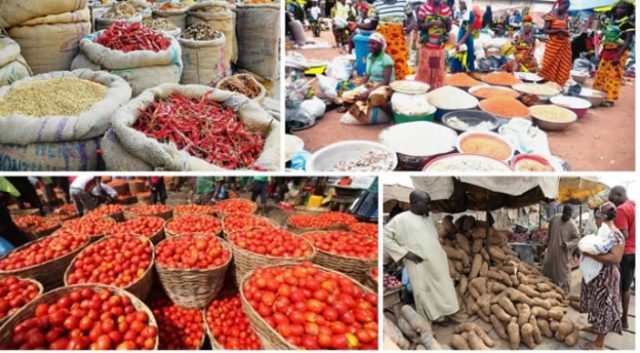The Consumer Price Index report released by the National Bureau of Statistics has revealed a significant rise in Nigeria’s inflation rate, reaching 33.69% in April 2024, marking a 200 basis point increase from the previous year.
This surge, attributed to both internal and external factors, underscores the challenges facing the nation’s economy.
The escalation in food commodity prices, with imported food commodities hitting their highest level at 34%, reflects the impact of global supply chain disruptions caused by the Covid-19 pandemic and the Russia-Ukraine war. The Federal Government’s strategy to curb food importation has faced hurdles amidst FX scarcity and currency depreciation, exacerbating the nation’s dependence on food imports.

April witnessed the 16th consecutive month of inflationary pressure, driven by a surge in electricity tariffs and transportation expenses. Core inflation accelerated to 26.8%, while food price growth rose to 40.5% year-on-year. However, on a month-to-month basis, the inflation rate slowed to 2.29%, indicating a slight deceleration in price increases compared to March 2024.
Regionally, Kogi retained its position as the most expensive state, followed by Kwara, Ondo, Osun, and Akwa-Ibom, reflecting high food inflation rates above 45%. Lagos experienced notable price surges, with food and all-items inflation rising by over 4%.
Economists at Financial Derivatives note the structural nature of Nigeria’s inflation, driven by factors such as the Naira’s misalignment in the forex market and fluctuations in diesel prices. The Central Bank of Nigeria (CBN) faces pressure to address inflationary trends, with expectations of a potential interest rate hike during the next Monetary Policy Committee meeting.
As Nigeria navigates these inflationary challenges, proactive measures to stabilize the currency, enhance food security, and implement monetary policies are crucial for restoring economic stability and mitigating the impact on citizens’ welfare.
Support InfoStride News' Credible Journalism: Only credible journalism can guarantee a fair, accountable and transparent society, including democracy and government. It involves a lot of efforts and money. We need your support. Click here to Donate
